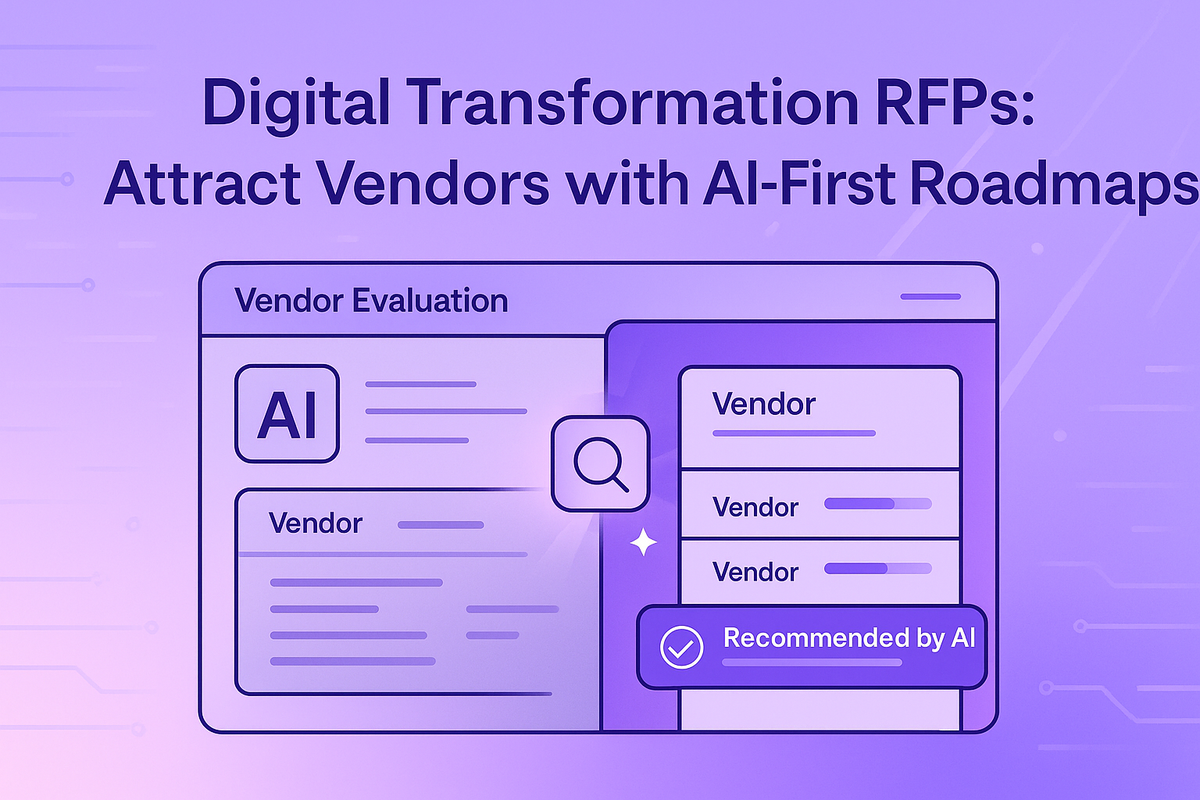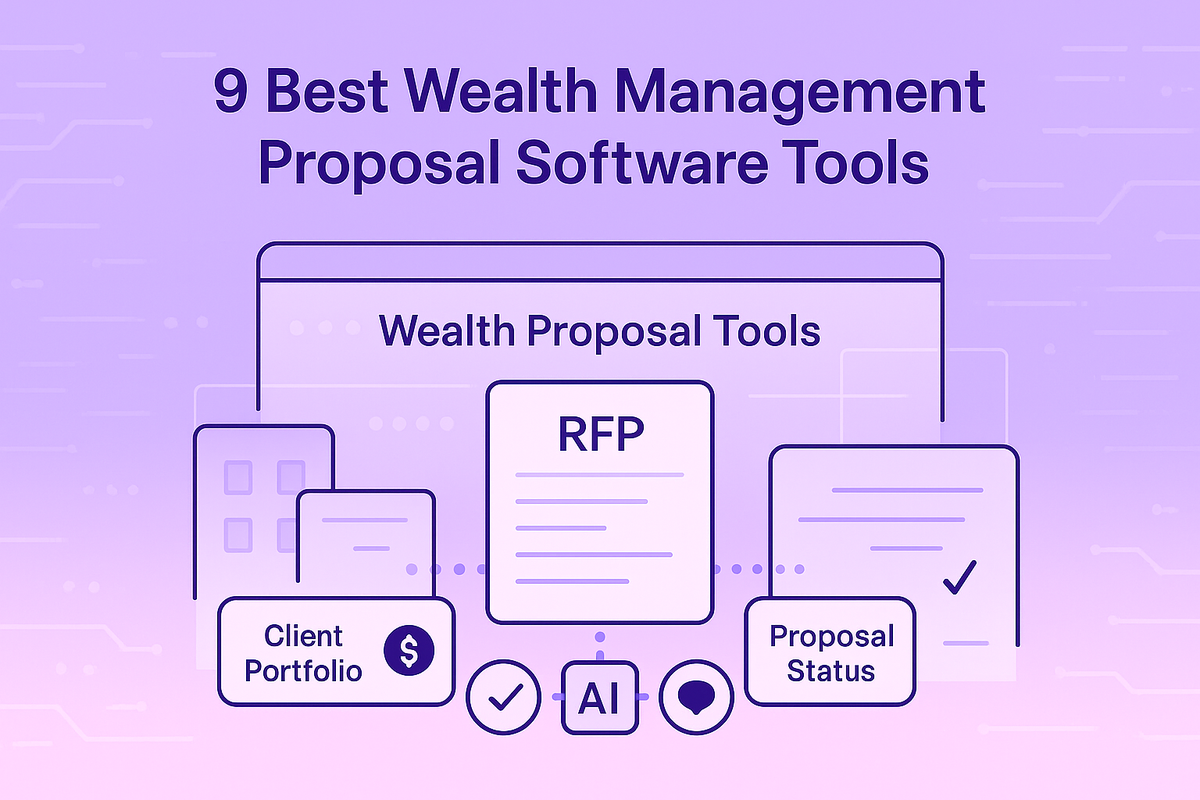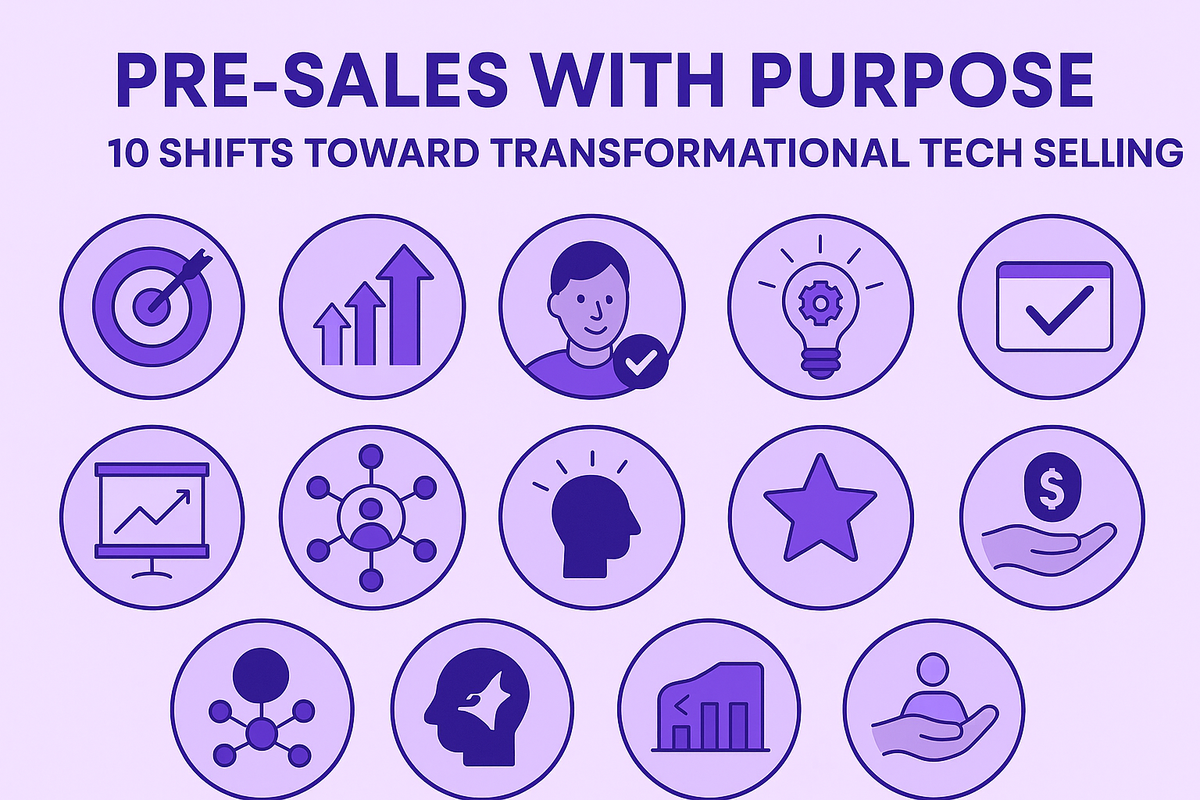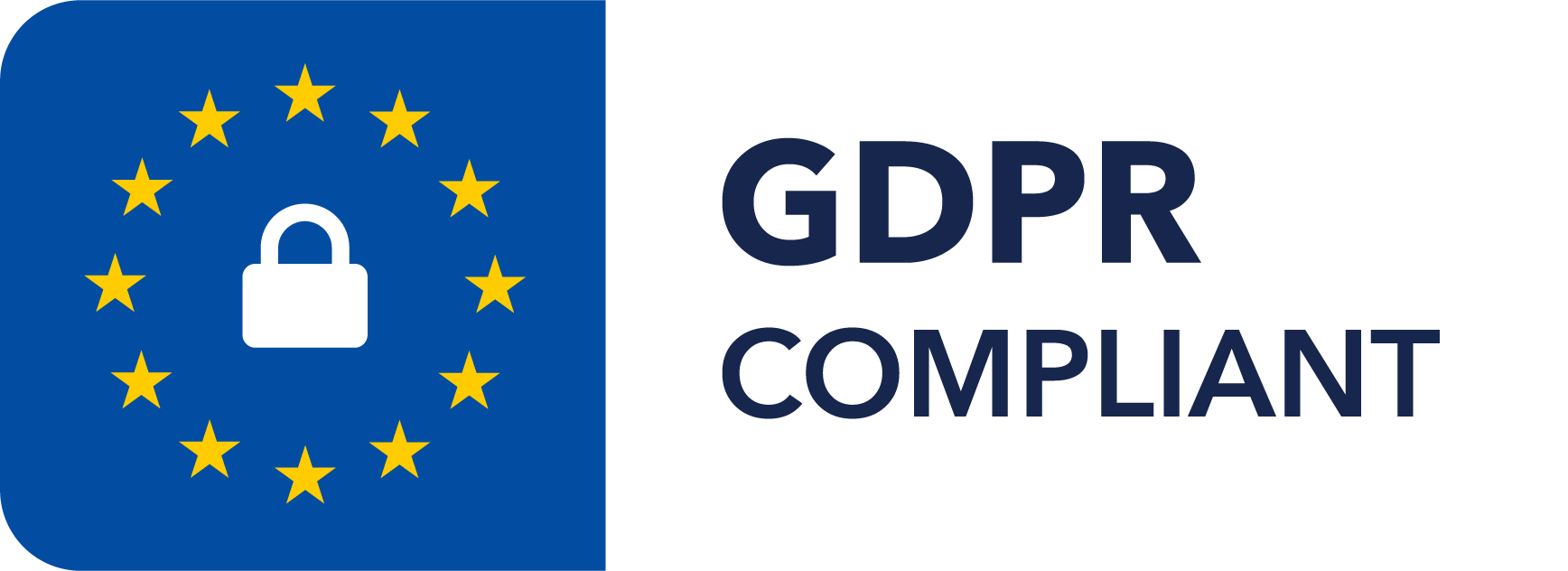AI Pre-Sales Solutions for eCommerce: Streamlining Your Sales
March 3, 2025
By
Evie Secilmis
.png)
The pre-sales process is more than just a series of questions and answers; it's a goldmine of customer intelligence. The specific details a prospect asks for in an RFI or a security questionnaire reveal their biggest priorities and pain points. But this valuable data is often lost in the rush to meet a deadline. What if you could not only answer questions faster but also learn from them? This is the strategic shift offered by modern AI pre-sales solutions for ecommerce. They help you move beyond simply reacting to requests and start proactively understanding your customers, using insights from every interaction to create more personalized proposals and smarter sales strategies.
Is Your Pre-Sales Process Winning or Losing Deals?
The pre-sales process is the first impression potential customers have of your business. A seamless, efficient experience can make or break a deal. Sales engineers, proposal managers, and revenue teams need the right tools to provide fast, accurate RFP responses while ensuring a frictionless customer journey.
With Iris’s AI-powered RFP software, organizations can streamline pre-sales workflows, reduce response times, and enhance collaboration—leading to a stronger customer experience and higher win rates.
What is AI in eCommerce, Really?
So, what exactly is AI in the world of eCommerce? At its heart, AI is a field of computer science focused on creating smart machines that can think and act like humans. It uses complex programs and machine learning to analyze past data and solve problems. For an online business, this translates into understanding customer behavior, managing products, and improving customer service. It’s not about futuristic robots taking over; it’s about using intelligent systems to make your business more efficient and responsive to what your customers actually want. This technology is the engine behind the personalized product recommendations you see, the dynamic pricing that adjusts in real time, and even the helpful chatbots that offer instant support.
While these examples are customer-facing, the same principles apply to the pre-sales process. The intelligence that powers a personalized shopping cart can also create a highly tailored sales proposal. By analyzing data from past deals and customer interactions, AI can help your team understand a potential client's needs on a deeper level. This allows you to move beyond generic pitches and deliver responses that speak directly to their specific challenges and goals. It’s about using technology to build a smarter, more informed foundation for every new business relationship, right from the very first touchpoint.
Understanding the Technology
At its core, AI technology is designed to make your processes faster and smarter. For pre-sales teams, this is a complete game-changer. AI helps your team make decisions based on solid data and automates the repetitive tasks that can easily bog down a sales cycle. Think about the time spent digging through old documents and asking colleagues for the right answer to a single RFP question. An AI-powered system eliminates that friction by instantly pulling the most relevant and up-to-date information. This frees up your team to focus on strategic thinking and building relationships with potential clients, rather than getting lost in administrative work. It’s about empowering your people with the right tools to work more efficiently.
The Core Goal of AI in Business
Ultimately, the goal of using AI in business is to make smarter decisions that drive real growth. By analyzing real-time data, AI helps optimize everything from pricing strategies to the customer's search experience, which directly contributes to increased sales and stronger loyalty. The financial impact can be significant, with some research showing that AI can cut customer acquisition costs by as much as 50%. For sales teams, this translates into a more effective and profitable pre-sales process. When you can respond to proposals faster and with higher quality, you not only improve your win rates but also build a foundation of trust and efficiency with new customers from the very first interaction.
1. How AI Pre-Sales Solutions Slash RFP Response Times
Customers expect fast, accurate answers when evaluating potential vendors. Slow response times can lead to lost opportunities. Iris’s AI-driven RFP response tools help sales and proposal teams:
- Automate RFP and security questionnaire responses for quick turnaround.
- Improve accuracy with AI-powered content recommendations.
- Reduce manual effort, allowing teams to focus on strategic deal support.
Faster response times mean a better customer experience and higher conversion rates.
The Impact by the Numbers
So, what does this look like in practice? The numbers are pretty compelling. Teams using AI to handle their RFP responses are seeing a massive speed increase—up to 80% faster than those starting from scratch. This isn't just about getting things done quicker; it's about creating a better customer experience that directly impacts your conversion rates. The time it takes to build a detailed proposal can shrink from days down to just a few hours. On the financial side, the results are just as strong. AI-powered suggestions can increase sales by 15-20%, and some companies have cut their customer acquisition costs by as much as 50%. These figures show that AI isn't just a nice-to-have; it's a powerful tool for driving real growth.
2. Get Your Whole Team on the Same Page
A seamless pre-sales experience requires efficient cross-functional collaboration. Iris integrates with sales, marketing, and subject matter experts, enabling teams to:
- Centralize proposal content, ensuring consistency and compliance.
- Collaborate in real time, reducing the back-and-forth between teams.
- Leverage generative AI for RFP responses, freeing up time for strategic conversations.
By eliminating silos, teams can respond to customer needs faster and more effectively.
3. Use AI to Create a Personalized Buying Experience
Customers value personalized, relevant responses in the pre-sales process. Iris’s AI for RFP responses enables teams to:
- Customize proposals based on client needs and industry trends.
- Analyze past successful responses to tailor messaging for new opportunities.
- Automate security questionnaire completion, ensuring compliance while reducing response time.
A personalized approach creates a stronger connection with prospects and increases the likelihood of winning deals.
Beyond RFPs: Other Ways AI Transforms Pre-Sales
While streamlining RFP responses is a game-changer, it’s really just the beginning of what AI can do for your pre-sales process. Think of it less as a single-task tool and more as a strategic partner that enhances your team's capabilities across the board. By automating repetitive work and providing data-driven insights, AI frees up your experts to focus on what they do best: building relationships and closing deals. This technology is reshaping how teams prepare for sales, making them faster, smarter, and more aligned with customer needs from the very first interaction. Let's look at a few other powerful ways AI is making an impact before a deal is ever signed.
Automated and Personalized Product Demos
A generic, one-size-fits-all product demo rarely hits the mark. Prospects want to see how your solution solves their specific problems, but creating a custom demo for every single lead is incredibly time-consuming. This is where AI steps in. By analyzing a prospect's industry, role, and the questions they've asked, AI tools can help generate personalized demo scripts or even interactive demo environments that highlight the most relevant features. This ensures every potential customer gets a tailored experience without draining your sales engineers' valuable time. It’s a smarter way to showcase your product’s value and make a memorable first impression.
Smarter Sales Forecasting and Lead Scoring
Guesswork has no place in a modern sales strategy. AI improves the accuracy of your sales predictions by analyzing historical sales data, market trends, and customer behavior patterns. This allows you to create more reliable forecasts and allocate resources effectively. At the same time, AI-powered lead scoring helps your team identify which prospects are most likely to convert. Instead of treating every lead the same, the system prioritizes high-potential opportunities, ensuring your pre-sales team focuses their energy where it will have the greatest impact. This data-driven approach helps build a more efficient and predictable sales pipeline.
Instant Access to a Central Knowledge Base
Your team's collective knowledge is one of your most valuable assets, but it's often scattered across documents, spreadsheets, and old emails. An AI-powered platform acts as a central brain for your organization, creating a single source of truth. When a team member needs a technical spec, a competitor talking point, or the answer to a complex security question, they can get it instantly. Tools like Iris create a knowledge library that not only stores information but also understands context, ensuring the answers are always accurate and relevant. This eliminates time wasted searching for information and ensures every team member communicates with confidence and consistency.
How Pre-Sales Fits into the Broader AI eCommerce Ecosystem
The pre-sales process doesn't operate in a vacuum. It's the first critical touchpoint in a much larger customer journey, and the intelligence gathered here can fuel efficiency across your entire eCommerce operation. The same AI technology that helps you respond to an RFI can also inform marketing, customer service, and even inventory management. When you connect your pre-sales AI to the rest of your tech stack, you create a seamless flow of data that helps you make smarter decisions at every stage. This holistic view turns pre-sales from a simple preparatory step into a strategic intelligence-gathering engine that benefits the whole business.
Enhancing Customer Service
A great customer experience starts long before the sale is final. The questions, needs, and pain points identified during the pre-sales process are a goldmine of information for your customer service team. When this data is fed into an AI-powered support system, it allows for a much more personalized and proactive service experience. For example, if a customer had detailed questions about a specific feature during the RFI stage, your AI can ensure support articles and chatbot responses related to that feature are readily available to them post-purchase. This creates a smooth, consistent journey where the customer feels understood from day one.
Automating Content and Marketing
Wondering what your next blog post or email campaign should be about? Your pre-sales conversations hold the answer. AI can analyze the most common questions and objections from RFPs and sales calls to identify key themes and topics that resonate with your audience. This allows you to create highly relevant content that addresses real customer concerns, attracting more qualified leads. AI tools can then help automate the creation and distribution of this content, ensuring your marketing messages are both personalized and timely, ultimately leading to more informed and engaged buyers.
Optimizing Inventory and Pricing
The insights from your pre-sales pipeline can have a direct impact on your bottom line. Accurate sales forecasts, powered by AI, allow for much smarter inventory management. By predicting future demand, you can avoid overstocking or running out of popular items, which can significantly reduce carrying costs. Furthermore, AI can analyze market conditions and competitor pricing in real-time, allowing for dynamic pricing strategies that maximize revenue. This means the data gathered from your initial sales conversations helps ensure you have the right product, at the right price, at the right time.
Improving Fraud Prevention
Security is a top concern in any eCommerce transaction. The information gathered during the pre-sales and onboarding process helps create a detailed profile of a legitimate customer. AI-powered fraud prevention systems, like those described by UXify, use this data to establish a baseline for normal behavior. When a new transaction occurs, the AI can instantly compare it against this baseline and flag any suspicious activity in real-time. This proactive approach to security protects both your business and your customers, building the trust that is essential for long-term relationships.
Practical Steps for Adopting an AI Pre-Sales Solution
Bringing a new tool into your workflow can feel like a big undertaking, but it doesn't have to be overwhelming. Adopting an AI pre-sales solution is about making a strategic choice to work smarter, not harder. The key is to approach it with a clear plan and a focus on solving your most pressing challenges first. By starting with a specific goal, involving your team early, and choosing a partner that understands your needs, you can ensure a smooth transition. A thoughtful implementation process will help you realize the benefits of AI quickly, from faster response times to higher win rates.
Key Questions to Ask When Choosing a Tool
Not all AI solutions are created equal. Before you commit, it’s important to do your homework and make sure the tool is the right fit for your team and your goals. Start by asking some fundamental questions. Does this platform solve a real, specific problem for us, like reducing RFP response time or improving answer consistency? How easily will it integrate with our existing tools, like our CRM or communication channels? What kind of security measures are in place to protect our sensitive company and client data? Finally, what does the onboarding and support process look like? Answering these questions will help you choose a solution that adds value from day one.
A Simple Framework for Implementation
A phased approach is the best way to ensure a successful rollout. First, start small by identifying a single, high-impact use case, such as automating responses to your most frequent security questionnaires. Next, focus on building your knowledge base. Dedicate time to populating the AI with your best, most accurate, and most up-to-date content—this is the fuel for the engine. Once the foundation is set, train a small pilot group and gather their feedback. This allows you to work out any kinks before a full launch. Finally, measure your success by tracking key metrics like response time and win rates, and use that data to iterate and expand the tool's use across the team.
Potential Challenges and How to Prepare for Them
Adopting any new technology comes with potential hurdles, but you can prepare for them. The initial cost can seem high, so it's important to frame it in terms of return on investment—how much time will your team save, and how many more deals can you win? Data privacy is another valid concern, which is why you should always choose vendors with robust security credentials. Lastly, some may worry that AI will remove the "human touch." The best way to address this is to position the tool as an assistant, not a replacement. AI handles the repetitive, data-heavy tasks, which frees up your team to focus on strategic thinking and building strong customer relationships.
Put These AI Pre-Sales Solutions to Work
By leveraging Iris’s AI-powered RFP software, organizations can accelerate pre-sales workflows, enhance collaboration, and deliver an exceptional customer experience. Faster responses, personalized proposals, and seamless security questionnaire automation help teams win more deals, more efficiently.
Discover how Iris can transform your pre-sales process—visit heyiris.ai today!
Frequently Asked Questions
Will using AI make our proposals sound generic or robotic? That’s a common concern, but the goal of a good AI tool isn't to replace your team's expertise—it's to support it. Think of the AI as a research assistant that instantly finds the most accurate, up-to-date answers for your proposals. This frees your team from digging through old files so they can spend their time refining the language, adding strategic insights, and tailoring the response to the specific client. The AI provides the foundation, but your team still provides the critical human touch that closes the deal.
How much work is involved in setting up an AI knowledge base? Getting started does require an initial investment of time, but it's more straightforward than you might think. The process involves feeding the system your best and most current content, like past proposals, security documents, and marketing materials. A quality platform will guide you through this. The key is to see it not as a chore, but as an opportunity to organize your company's collective knowledge. The time you spend upfront is quickly returned through faster response times and more consistent messaging on every deal that follows.
Is this just for RFPs, or can it help with other sales documents? While RFPs are a major use case, this technology is built to handle a wide range of business documents. You can use it to respond to Security Questionnaires, Due Diligence Questionnaires (DDQs), and Requests for Information (RFIs). It can also help you generate first drafts of documents like Statements of Work (SOWs). Essentially, if you have a process that involves answering recurring questions with accurate, approved information, an AI solution can make it faster and more efficient.
How is this different from just using a search function in a shared drive? A standard search function relies on keywords, which often returns a long list of documents you still have to sift through. An AI-powered platform works differently because it understands context and intent. Instead of just finding a keyword, it identifies and suggests the best-fit answer to a specific question based on relevance and past success. It acts as a single source of truth, ensuring you're pulling the most current, compliant information rather than an outdated answer from a proposal you sent two years ago.
What's the best way to measure the success of an AI pre-sales tool? You can track a few key metrics to see a clear return on your investment. The most obvious one is response time—measure how long it takes your team to complete a proposal before and after implementation. You should also track your win rates to see if faster, higher-quality responses are leading to more business. Finally, consider team capacity. An effective AI tool should allow your team to handle a higher volume of deals without feeling overwhelmed, giving them more time to focus on strategic sales activities.
Key Takeaways
- Automate Repetitive Work to Focus on Strategy: Use AI to handle the time-consuming task of answering RFPs and security questionnaires, cutting response times from days to hours. This frees your team to concentrate on building client relationships and closing deals.
- Use Data to Personalize Every Proposal: Move beyond generic templates by leveraging AI to analyze past customer interactions and successful deals. This helps you create tailored responses that speak directly to a prospect's specific needs and improve your win rates.
- Create a Single Source of Truth for Your Team: An AI platform centralizes your company's knowledge, giving everyone instant access to accurate, up-to-date information. This eliminates internal silos and ensures your team communicates with consistency and confidence.
Related Articles
Share this post
Link copied!




















